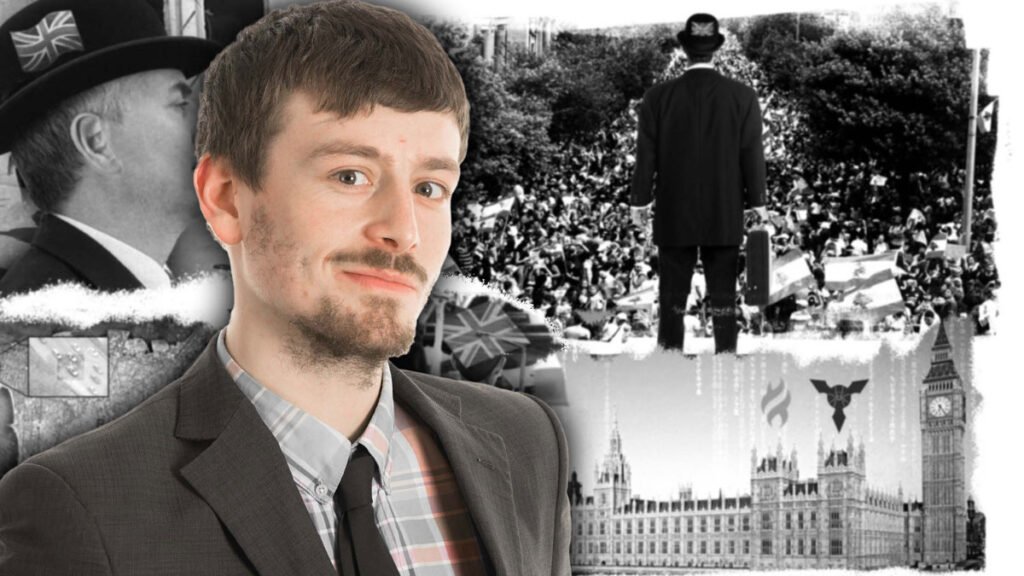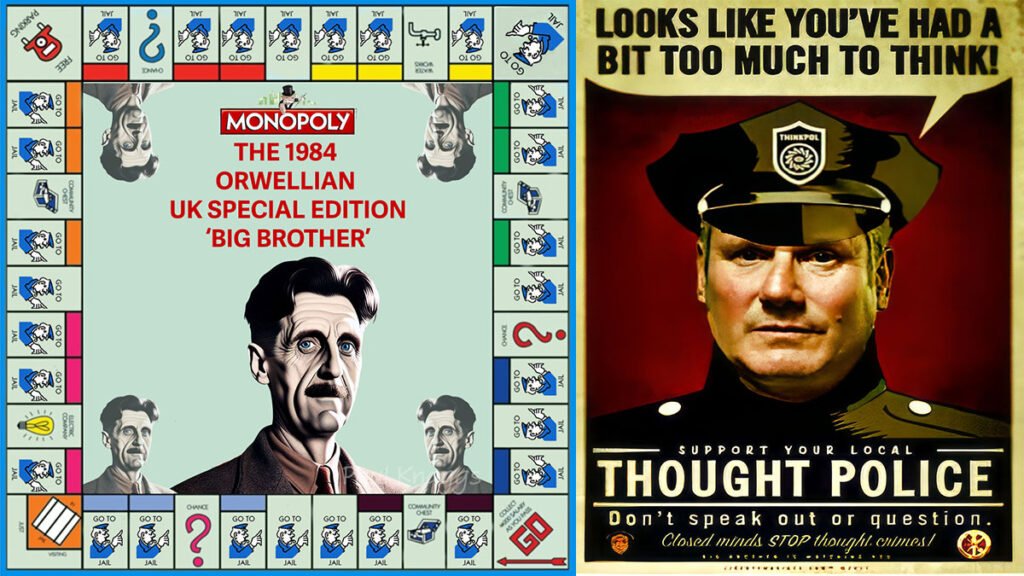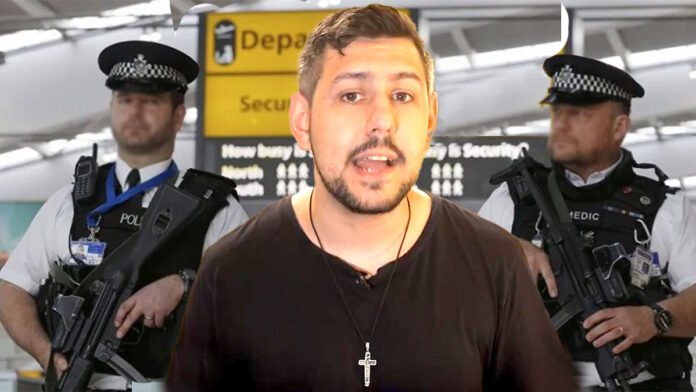UK’s Terrorism Act: A New Tool for Silencing Journalists?
What is needed is the right to print what one believes to be true, without having to fear bullying or blackmail from any side.
– George Orwell
In a deeply troubling development, British journalist Richard Medhurst recently became the target of what appears to be a deliberate effort to stifle press freedom. Medhurst, widely respected for his critical reporting, was detained under the UK’s contentious Terrorism Act upon his arrival at Heathrow Airport.
Medhurst, an internationally accredited journalist, was subjected to a harrowing 24-hour ordeal. He was handcuffed, isolated, and interrogated under Section 12 of the Terrorism Act, accused of “expressing an opinion or belief supportive of a prescribed organisation.”
The treatment he endured—ranging from physical discomfort to intense psychological pressure—resembles the tactics of an authoritarian regime rather than the procedures of a democratic nation.
These alarming events raise serious questions about the current state of press freedom in the UK. Are we witnessing the emergence of a surveillance state under Prime Minister Starmer? The use of anti-terrorism laws to intimidate and silence journalists sets a dangerous precedent that threatens the very foundations of our democracy.
Medhurst has been a vocal critic of government policies, particularly on foreign affairs and the situation in Palestine. His detention sends a chilling message to other journalists: challenge the status quo, and you may face the full force of the state.
Last year, another British journalist was detained by counter-terrorism police at London’s Luton Airport and interrogated over his work for the independent news website The Grayzone, it has been revealed. Kit Klarenberg, who had arrived from Belgrade, Serbia, was detained by six plain-clothes counter-terrorism officers. The officers refused to disclose their names, offering call signs instead.

Klarenberg, known for his exposés on the British government and intelligence services, was taken to a room and interrogated for over five hours about his reports, his employment by The Grayzone, and his personal political opinions, including his views on the British establishment and Russia’s invasion of Ukraine. Police seized his electronic devices, bank cards, and memory cards, fingerprinted him, took DNA swabs, and photographed him. The officers reportedly threatened to arrest him if he did not comply.
“They asked which publications I wrote for, and I told them I wrote for many,” Klarenberg said. “Their overwhelming, if not exclusive, interest was in The Grayzone.” Whatever happened to press freedom and freedom of speech in this country, said the last man to speak freely.
From Democracy to Surveillance State: The UK’s War on Journalism

The Terrorism Act, which was originally designed to combat genuine threats to national security, is now being misused as a tool to suppress free speech and investigative journalism. This overreach not only undermines the Act’s legitimacy but also erodes public trust in our institutions.
As Medhurst poignantly stated, “We cannot call ourselves a democracy as long as reporters are dragged off planes, detained, and treated like criminals.” His words serve as a stark reminder of the dangers we face if we do not safeguard press freedom.
These incidents do not occur in a vacuum. They are part of a broader pattern of increasing pressure on journalists, from the persecution of Julian Assange to the detention of Craig Murray and David Miranda. This trend should alarm every citizen who values transparency and accountability in government.
The pressing questions now are not just why these journalists were detained, but who ordered these actions? And more importantly, how do we, as a society, respond to this assault on press freedom?
We need an urgent public debate about the limits of state power and the protection of journalistic freedoms. It is imperative that we demand clarity from our elected officials and push for reforms to laws that are prone to abuse.
The health of our democracy depends on a free and fearless press. If we allow journalists to be silenced through intimidation and legal harassment, we edge closer to the Orwellian nightmare we’ve long feared. It’s time to take a stand for press freedom before it is too late.
Support Independent Journalism Today
Our unwavering dedication is to provide you with unbiased news, diverse perspectives, and insightful opinions. We're on a mission to ensure that those in positions of power are held accountable for their actions, but we can't do it alone. Labour Heartlands is primarily funded by me, Paul Knaggs, and by the generous contributions of readers like you. Your donations keep us going and help us uphold the principles of independent journalism. Join us in our quest for truth, transparency, and accountability – donate today and be a part of our mission!
Like everyone else, we're facing challenges, and we need your help to stay online and continue providing crucial journalism. Every contribution, no matter how small, goes a long way in helping us thrive. By becoming one of our donors, you become a vital part of our mission to uncover the truth and uphold the values of democracy.
While we maintain our independence from political affiliations, we stand united against corruption, injustice, and the erosion of free speech, truth, and democracy. We believe in the power of accurate information in a democracy, and we consider facts non-negotiable.
Your support, no matter the amount, can make a significant impact. Together, we can make a difference and continue our journey toward a more informed and just society.
Thank you for supporting Labour Heartlands












